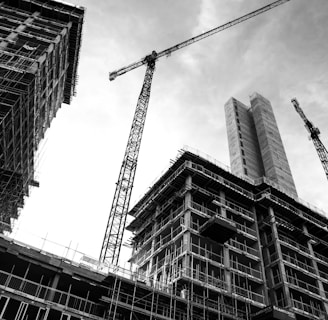Section 54 Exemption on Capital Gains: Does Delay in Possession Affect Your Claim In Case of Redevelopment?
Delay in possession of. Redeveloped Flat and implication of capital gain under Income Tax Act.
6/21/20253 min read


Section 54 Exemption on Capital Gains: Does Delay in Possession Affect Your Claim In Case of Redevelopment?
Selling a residential property often leads to capital gains tax liability. However, Section 54 of the Income Tax Act provides relief by allowing an exemption if the sale proceeds are reinvested in another residential property. But what happens when redevelopment delays possession beyond 3 years?
ITAT Chennai Upholds Section 54/54F Exemption Despite Delay: Anil Kirthisimhan Wijeyanayake vs ACIT
The Income Tax Appellate Tribunal (ITAT) Chennai’s decision in Anil Kirthisimhan Wijeyanayake vs ACIT (ITA No. 1663/Chny/2017, Order dated 12/06/2023) is a significant relief for taxpayers facing delays in possession of flats from developers.
Background
Anil Kirthisimhan Wijeyanayake sold a property and invested the capital gains in a new residential flat, aiming to claim exemption under Sections 54 and 54F of the Income Tax Act. However, the developer delayed handing over the possession of the new flat beyond the statutory period.
Key Issue
The central question was whether the exemption under Section 54/54F could be denied solely because the possession of the new property was delayed by the builder, even though the taxpayer had made the required investment within the stipulated time.
ITAT Chennai’s Ruling
The Tribunal held that a delay in handing over possession by the developer does not undermine the assessee’s claim for capital gain deduction under Section 54/54F.
The essence of the law is that if the taxpayer has invested the capital gains in a new residential property within the prescribed time, the exemption should not be denied due to circumstances beyond their control, such as a developer’s delay.
Why This Matters
This ruling aligns with the principle that taxpayers should not be penalized for delays caused by third parties, provided they have fulfilled their investment obligations within the legal timeframe. It offers reassurance to those affected by construction or possession delays in real estate transactions.
Another key ruling by the Income Tax Appellate Tribunal (ITAT) Delhi in Vijay Kumar Gupta vs. ACIT clarifies this issue. Let’s break it down.
Case Background: Vijay Kumar Gupta vs. ACIT
Facts of the Case
The assessee sold his residential property and invested the capital gains in an under-construction property.
Due to builder-related delays, possession was received after 3 years from the date of sale.
The Assessing Officer (AO) denied the Section 54 exemption, arguing that the new property was not acquired within the prescribed time.
ITAT’s Decision
The ITAT allowed the exemption, stating:
The investment was made within 2 years of the sale (as required under Section 54).
The 3-year limit applies only to constructed properties, not under-construction ones.
Since construction was ongoing and payments were made within the deadline, the delay in possession did not disqualify the exemption.
Key Takeaways from the Judgment
1. Time Limits Under Section 54
Purchase of a constructed house: Must be bought 1 year before or 2 years after the sale.
Construction of a new house: Must be completed within 3 years of the sale.
Investment in under-construction property: The 3-year limit does not apply if construction is delayed, as long as the investment is made within 2 years.
2. What If Possession is Delayed Beyond 3 Years?
If the property is under construction, delays due to builder issues do not disqualify the exemption.
The key condition is that the payment must be made within 2 years of the sale.
The ITAT recognizes practical delays in real estate projects and does not penalize taxpayers for builder-related hold-ups.
3. Supporting Documents Required
To claim exemption in delayed possession cases, taxpayers should maintain:
Agreement with the builder (showing commitment to purchase).
Payment receipts (proving investment within 2 years).
Construction updates (to justify the delay).
Practical Implications for Home Sellers
Under-Construction vs. Ready Property:
If buying a ready-to-move-in property, ensure registration within 2 years.
If investing in under-construction property, ensure payments are made within 2 years, even if possession is delayed.
Redevelopment Projects:
If you surrender your old flat for redevelopment, ensure the new flat is registered in your name within the time limit.
Mere promises by builders do not qualify—legal ownership must transfer.
Delays Due to Builders:
Keep all communication and payment proofs to justify delays.
ITAT rulings support taxpayers when delays are beyond their control.
Conclusion
The Vijay Kumar Gupta vs. ACIT ruling provides much-needed clarity for taxpayers investing in under-construction properties. Delayed possession does not automatically deny Section 54 exemption as long as the investment is made within the prescribed time.
Litigation
Experts in civil, criminal, and tax law.
Services
Contact
mail@janakco.in
© 2025. All rights reserved.
